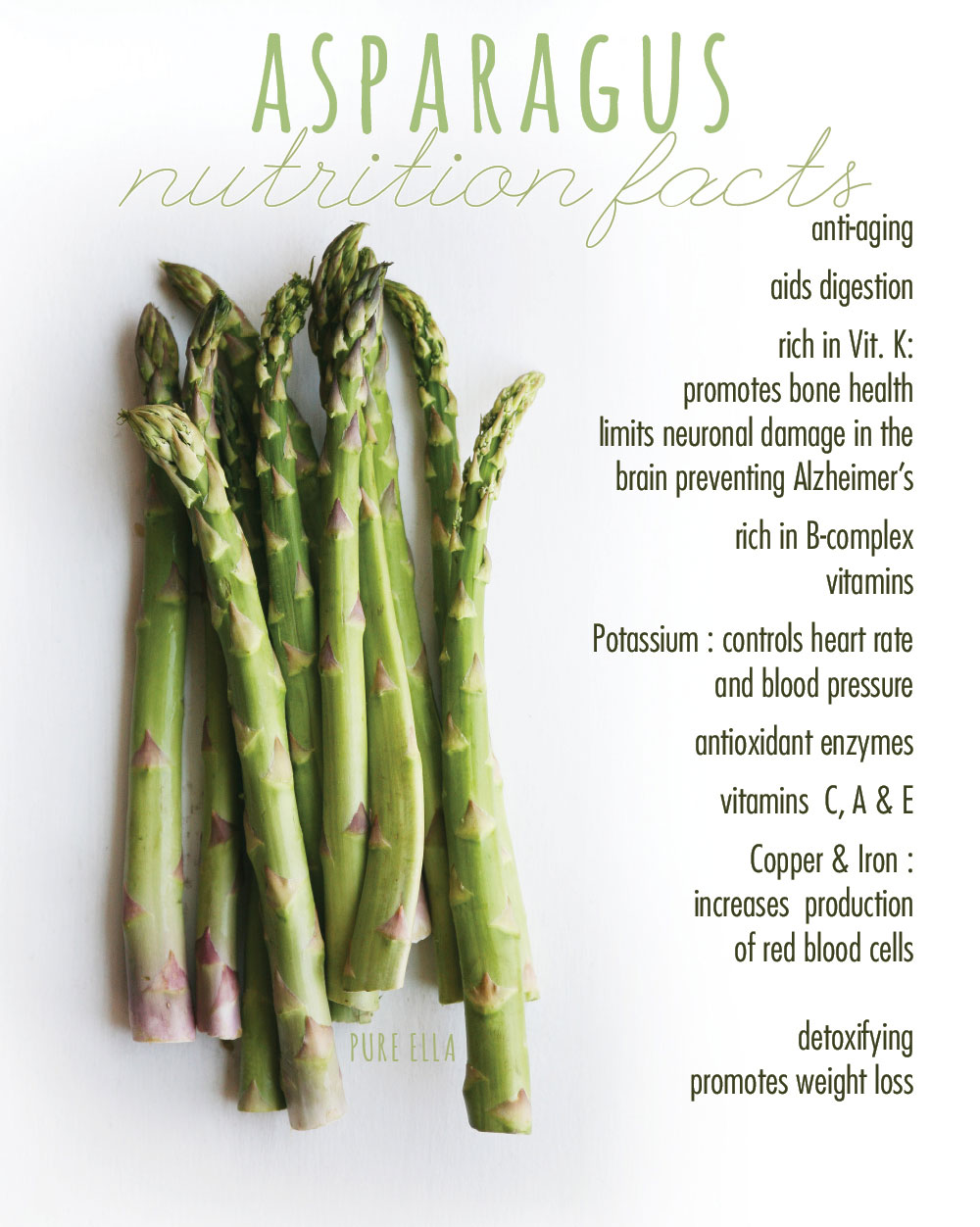Unlocking The Health Benefits Of Asparagus: Nutrition And More

Table of Contents
The Nutritional Powerhouse of Asparagus
Asparagus is far more than just a delicious side dish; it's a nutritional goldmine brimming with vitamins, minerals, and antioxidants. Let's explore the impressive nutritional composition that contributes to its numerous health benefits.
Vitamins and Minerals in Asparagus
A single cup of cooked asparagus is a treasure trove of essential nutrients. It provides a significant portion of your daily recommended intake of several key vitamins and minerals:
- Vitamin K: Crucial for blood clotting and bone health. A cup of cooked asparagus provides approximately 40% of the recommended daily intake of Vitamin K.
- Vitamin A: Essential for vision, immune function, and cell growth.
- Vitamin C: A potent antioxidant vital for immune support and collagen production.
- Folate (Vitamin B9): Essential for cell growth and development, particularly important during pregnancy.
- Potassium: An important electrolyte crucial for maintaining healthy blood pressure.
- Copper: Plays a vital role in energy production and iron absorption.
- Manganese: Contributes to bone health, wound healing, and metabolism.
Asparagus and Antioxidant Properties
Asparagus is rich in antioxidants, which combat free radicals – unstable molecules that can damage cells and contribute to aging and various diseases. These antioxidants include glutathione, vitamin C, and vitamin E. By neutralizing free radicals, asparagus helps protect your cells from damage, reducing the risk of chronic diseases like heart disease and certain types of cancer. This antioxidant power is a significant contributor to the overall asparagus health benefits.
Fiber Content and Digestive Health
Asparagus is a good source of dietary fiber, both soluble and insoluble. This fiber is essential for promoting healthy digestion and regularity. The fiber in asparagus adds bulk to your stool, preventing constipation and promoting regular bowel movements. Furthermore, its fiber content contributes to feelings of fullness, which can aid in weight management as part of a balanced diet.
Asparagus and its Impact on Specific Health Conditions
The impressive nutrient profile of asparagus translates into significant health benefits for various conditions.
Asparagus for Heart Health
The potassium and folate in asparagus contribute to cardiovascular health. Potassium helps regulate blood pressure, while folate plays a vital role in reducing homocysteine levels – a risk factor for heart disease. Studies suggest that a diet rich in potassium-containing foods, like asparagus, can help lower blood pressure and reduce the risk of stroke.
Asparagus and Blood Sugar Control
Asparagus boasts a low glycemic index (GI), meaning it doesn't cause rapid spikes in blood sugar levels. This makes it a suitable food choice for individuals with diabetes or those looking to manage their blood sugar effectively. The fiber in asparagus further contributes to its blood sugar-regulating properties.
Asparagus and Cancer Prevention
Research suggests a potential link between asparagus consumption and a reduced risk of certain cancers. The abundance of antioxidants and other beneficial compounds in asparagus may play a role in protecting against cell damage and cancer development. However, it's important to note that this is an area of ongoing research, and more studies are needed to confirm these findings.
Incorporating Asparagus into Your Diet
Asparagus is incredibly versatile and easily integrated into a healthy diet.
Delicious and Versatile Recipes
Asparagus’s delicate flavor pairs well with various ingredients and cooking methods:
- Grilled Asparagus: Simply toss with olive oil, salt, and pepper, then grill until tender-crisp.
- Asparagus Frittata: A delicious and protein-packed breakfast or brunch option.
- Creamy Asparagus Soup: A comforting and flavorful soup, perfect for a light meal.
You can find countless asparagus recipes online – its versatility allows it to be incorporated into salads, pasta dishes, stir-fries, and more!
Selecting and Storing Asparagus
Choosing and storing asparagus properly ensures you get the most out of its nutritional value:
- Select spears that are firm, bright green, and have tightly closed tips.
- Store asparagus in a cool, dark place, wrapped in a damp paper towel. Avoid storing it in the refrigerator for extended periods, as this can affect its taste and texture.
Reap the Rewards of Asparagus Health Benefits
In conclusion, the asparagus health benefits are undeniable. From its rich vitamin and mineral content to its potent antioxidant properties and positive impact on heart health, blood sugar control, and potentially even cancer prevention, asparagus is a true nutritional superstar. By incorporating this versatile and delicious vegetable into your diet, you can unlock a wealth of health advantages. Start reaping the amazing asparagus health benefits now! Unlock the power of asparagus today!

Featured Posts
-
 Addio A Mario Nanni Un Ricordo Del Maestro Del Giornalismo Parlamentare
Apr 30, 2025
Addio A Mario Nanni Un Ricordo Del Maestro Del Giornalismo Parlamentare
Apr 30, 2025 -
 The Health Benefits Of Asparagus A Comprehensive Guide
Apr 30, 2025
The Health Benefits Of Asparagus A Comprehensive Guide
Apr 30, 2025 -
 I Pari Sen Zermen Paramenei Stin Euroleague Episimi Anakoinosi
Apr 30, 2025
I Pari Sen Zermen Paramenei Stin Euroleague Episimi Anakoinosi
Apr 30, 2025 -
 Beyonce Nje Yll Ne Fushaten E Re Te Levis
Apr 30, 2025
Beyonce Nje Yll Ne Fushaten E Re Te Levis
Apr 30, 2025 -
 Clases De Boxeo En Edomex Inscripcion Proximamente 3 Dias
Apr 30, 2025
Clases De Boxeo En Edomex Inscripcion Proximamente 3 Dias
Apr 30, 2025
